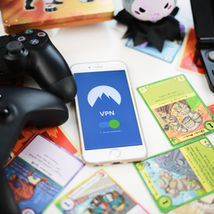Becoming a Good Digital Citizen: Navigating the Online World Ethically

In today's hyper-connected world, being a good digital citizen is as important as being a good citizen in our physical communities. Just as we uphold certain values and responsibilities in our neighborhoods, we must also do so in the digital realm. This blog post explores what it means to be a good digital citizen and an ethical internet user and social media user.
Defining Digital Citizenship
Digital citizenship refers to the responsible and ethical use of technology, particularly the Internet and social media platforms. It encompasses a set of principles and practices that guide our behavior online, ensuring that our digital actions align with the values of respect, responsibility, and empathy.
Key Principles of Digital Citizenship
1. Respect for Others
Respecting others in the digital world is paramount. This includes refraining from cyberbullying, hate speech, or any form of online harassment. Always remember that there are real people with feelings on the other side of the screen. Treat them with the same courtesy and respect you would in person.
2. Privacy Awareness
Being a good digital citizen means safeguarding your own privacy and respecting the privacy of others. Don't share personal information recklessly and be cautious about what you post online. Familiarize yourself with privacy settings on social media platforms and use them to control who can see your content.
3. Ethical Thinking
In the era of fake news and misinformation, ethical thinking is a vital component of digital citizenship. Verify the accuracy of information before sharing it. Be aware of biases in online content and consider multiple perspectives. Don't contribute to the spread of false or misleading information.
4. Online Etiquette
Just as there are social norms in face-to-face interactions, there are online etiquettes to follow. Use proper language and tone in your communications. Avoid spamming, excessive self-promotion, or overposting. Participate in online discussions respectfully, even if you disagree with others.
5. Cybersecurity
Protecting yourself and others from cyber threats is part of being a responsible digital citizen. Use strong, unique passwords, enable two-factor authentication, and keep your devices and software up to date. Be cautious of phishing attempts and report suspicious activities.

Benefits of Being a Good Digital Citizen
Embracing the principles of digital citizenship offers numerous benefits:
Safer Online Environment: When individuals practice responsible online behavior, it creates a safer and more pleasant digital environment for everyone.
Positive Reputation: Ethical use of the internet and social media can enhance your online reputation and build trust with peers, colleagues, and potential employers.
Empowerment: Digital citizens have the knowledge and skills to navigate the online world effectively, which can lead to personal and professional empowerment.
Stronger Communities: Responsible digital citizenship fosters stronger, more supportive online communities where individuals can learn, share, and collaborate effectively.
Conclusion
Being a good digital citizen and an ethical user of the internet and social media is not just about following rules; it's about embracing a mindset of respect, responsibility, and empathy. By practicing these principles, we can collectively create a more positive and productive digital world for ourselves and future generations. It's a responsibility we all share, and it's one worth taking seriously.




















